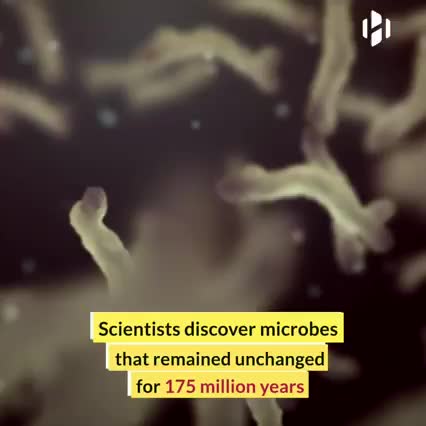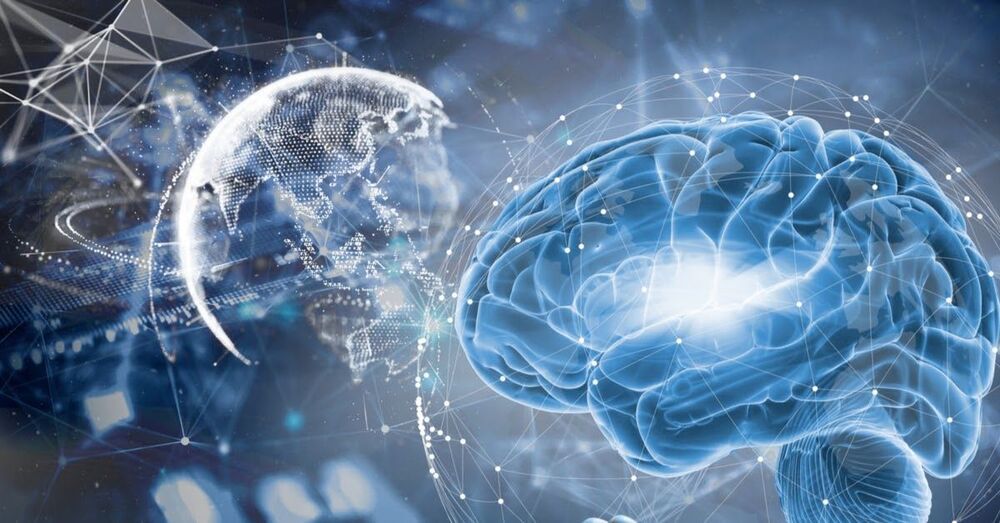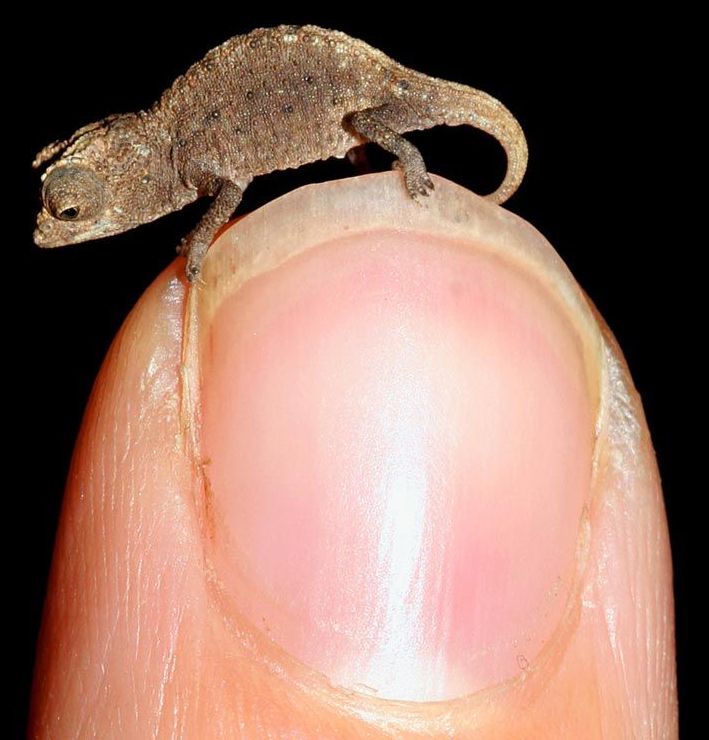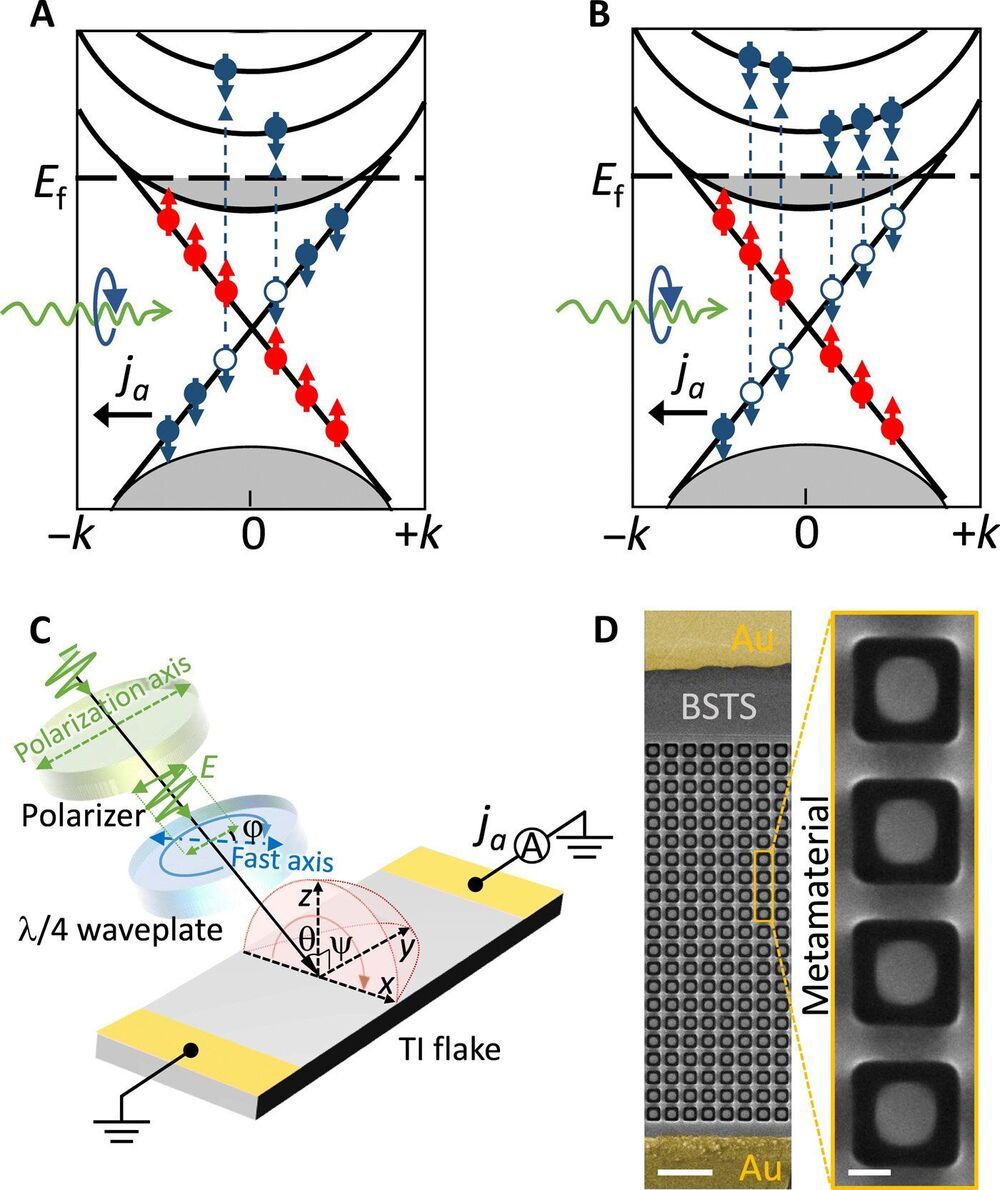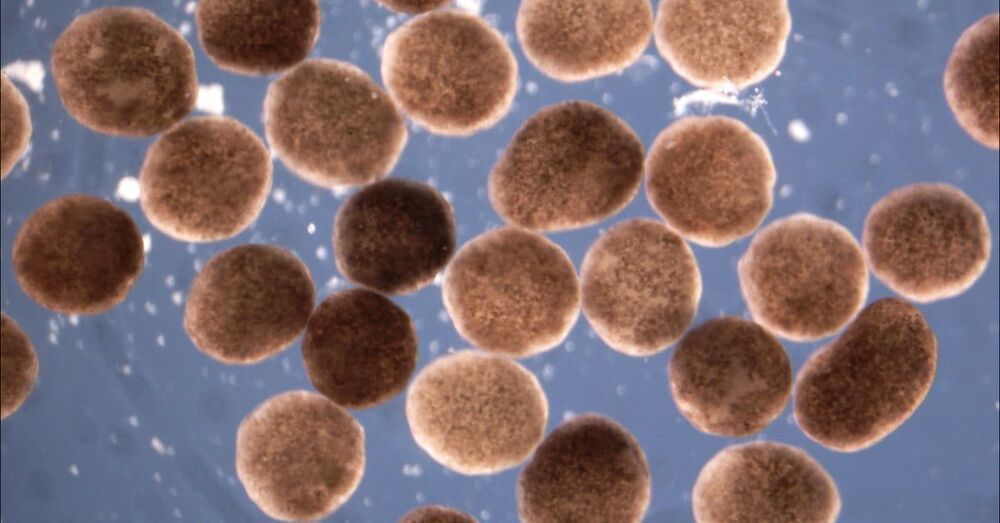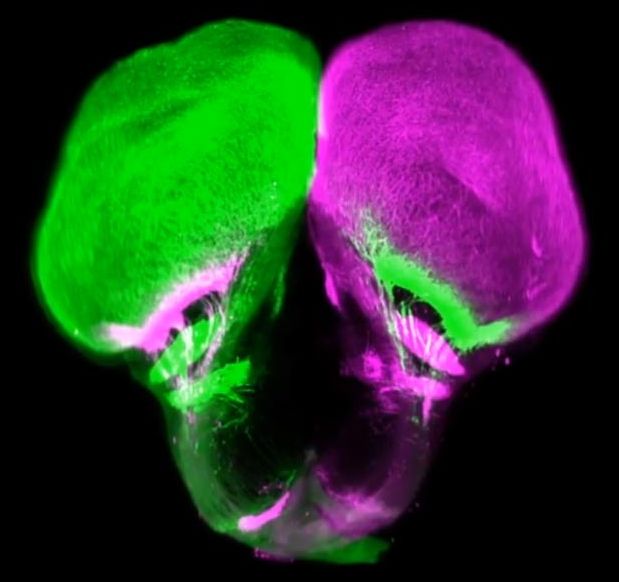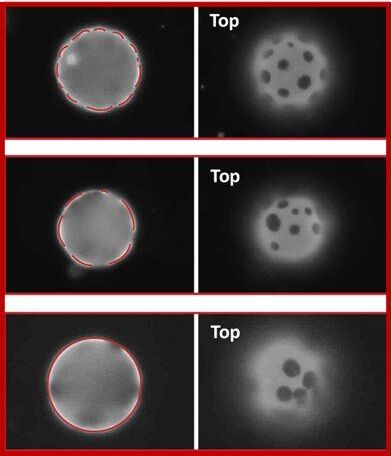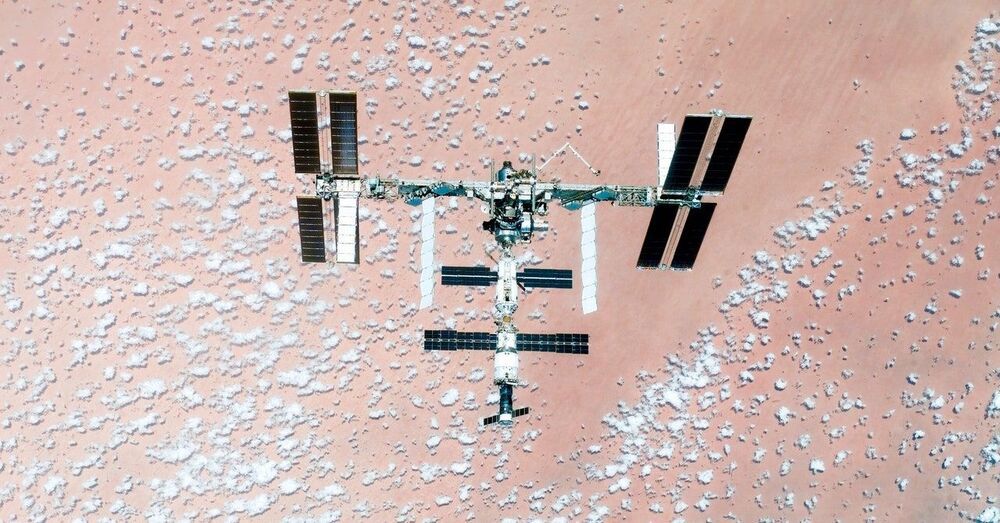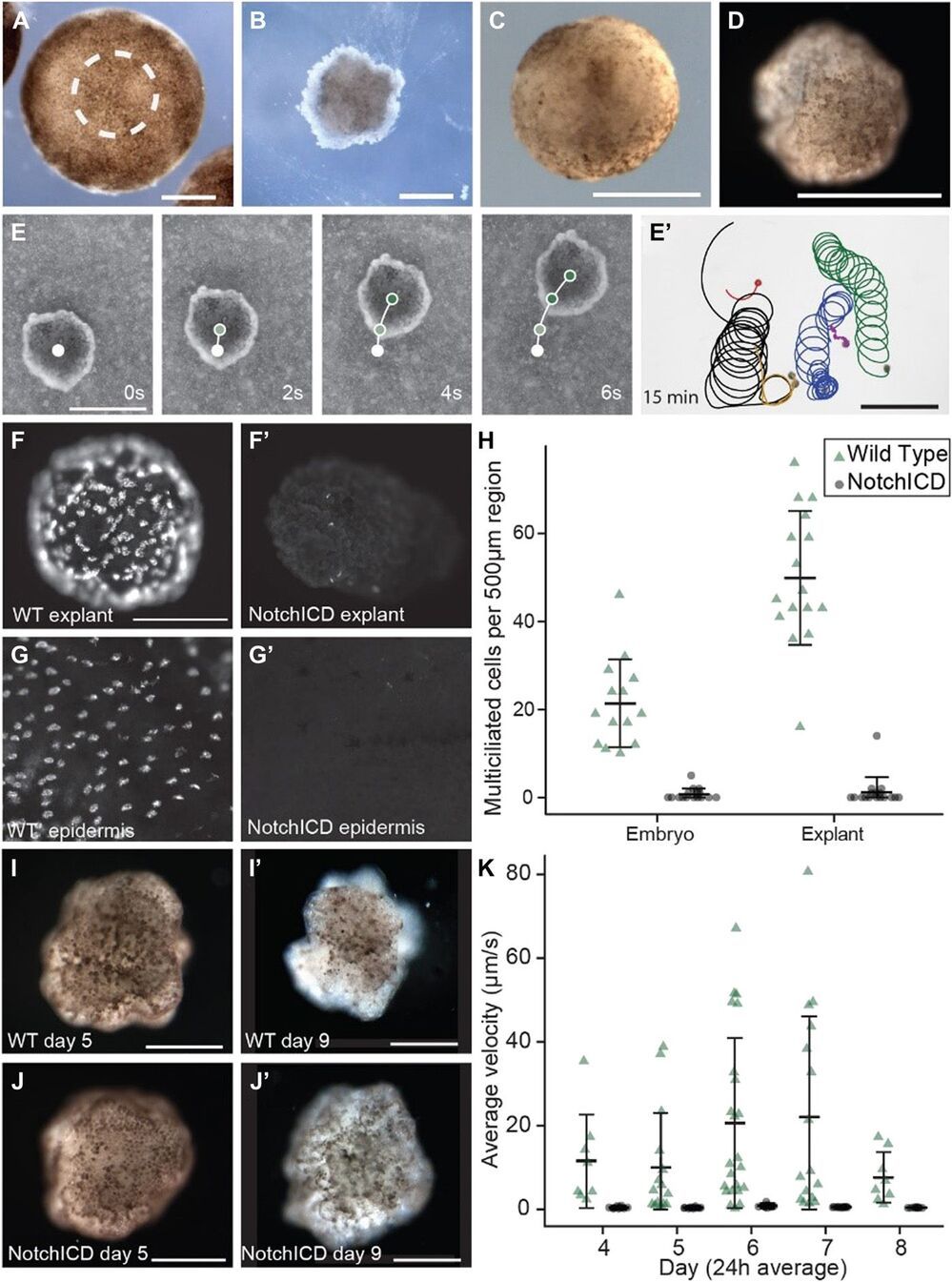Archive for the ‘biological’ category: Page 131
Apr 16, 2021
Transcendental Cybernetics: Imagining the Technological Singularity
Posted by Alex Vikoulov in categories: biological, evolution, singularity
The Syntellect Emergence seems to be a cosmic necessity, and in the long run, any voices calling to resist the cybernetic fusion of the mind will be no more influential than the voices calling, right now, to eradicate civilization and return to the jungle. Nature’s tendency to build up hierarchies of emergent patterns, the heuristic law of evolution, supersedes the human race itself. We see it time and again, Nature is constantly trying to combine seemingly opposing forces, to assemble existing parts into the new wholes through the universal process of radical emergence. We are bound to transcend our biology, our human condition, our limited dimensionality, we are bound to transcend ourselves.
#TranscendentalCybernetics #CyberneticSingularity #SyntellectEmergence
Syntellect Emergence is hypothesized to be the next meta-system transition, becoming one Global Mind — that constitutes the Cybernetic Singularity.
Continue reading “Transcendental Cybernetics: Imagining the Technological Singularity” »
Apr 16, 2021
Island Gigantism and Dwarfism: Evolutionary “Island Rule” Confirmed
Posted by Jason Blain in categories: biological, evolution
It is an old-standing theory in evolutionary ecology: animal species on islands have the tendency to become either giants or dwarfs in comparison to mainland relatives. Since its formulation in the 1960s, however, the ‘island rule’ has been severely debated by scientists. In a new publication in Nature Ecology and Evolution on April 15, 2021, researchers solved this debate by analyzing thousands of vertebrate species. They show that the island rule effects are widespread in mammals, birds, and reptiles, but less evident in amphibians.
Dwarf hippos and elephants in the Mediterranean islands are examples of large species that exhibited dwarfism. On the other hand, small mainland species may have evolved into giants after colonizing islands, giving rise to such oddities as the St Kilda field mouse (twice the size of its mainland ancestor), the infamous dodo of Mauritius (a giant pigeon), and the Komodo dragon.
In 1973, Leigh van Valen was the first that formulated the theory, based on the study by mammologist J. Bristol Foster in 1964, that animal species follow an evolutionary pattern when it comes to their body sizes. Species on islands have the tendency to become either giants or dwarfs in comparison to mainland relatives. “Species are limited to the environment on an island. The level of threat from predatory animals is much lower or non-existent,” says Ana Benítez-Lopez, who carried out the research at Radboud University, now researcher at Doñana Biological Station (EBD-CSIC, Spain). “But also limited resources are available.” However, until now, many studies showed conflicting results which led to severe debate about this theory: is it really a pattern, or just an evolutionary coincidence?
Apr 13, 2021
Topological insulator metamaterial with giant circular photogalvanic effect
Posted by Saúl Morales Rodriguéz in categories: biological, chemistry, food, nanotechnology, physics, space
Topological insulators have notable manifestations of electronic properties. The helicity-dependent photocurrents in such devices are underpinned by spin momentum-locking of surface Dirac electrons that are weak and easily overshadowed by bulk contributions. In a new report now published on Science Advances, X. Sun and a research team in photonic technologies, physics and photonic metamaterials in Singapore and the U.K. showed how the chiral response of materials could be enhanced via nanostructuring. The tight confinement of electromagnetic fields in the resonant nanostructures enhanced the photoexcitation of spin-polarized surface states of a topological insulator to allow an 11-fold increase of the circular photogalvanic effect and a previously unobserved photocurrent dichroism at room temperature. Using this method, Sun et al. controlled the spin transport in topological materials via structural design, a hitherto unrecognized ability of metamaterials. The work bridges the gap between nanophotonics and spin electronics to provide opportunities to develop polarization-sensitive photodetectors.
Chirality
Chirality is a ubiquitous and fascinating natural phenomenon in nature, describing the difference of an object from its mirror image. The process manifests in a variety of scales and forms from galaxies to nanotubes and from organic molecules to inorganic compounds. Chirality can be detected at the atomic and molecular level in fundamental sciences, including chemistry, biology and crystallography, as well as in practice, such as in the food and pharmaceutical industry. To detect chirality, scientists can use interactions with electromagnetic fields, although the process can be hindered by a large mismatch between the wavelength of light and the size of most molecules at nanoscale dimensions. Designer metamaterials with structural features comparable to the wavelength of light can provide an independent approach to devise optical properties on demand to enhance the light-matter interaction to create and enhance the optical chirality of metamaterials. In this work, Sun et al.
Apr 12, 2021
Xenobots: Living, Biological Robots that Work in Swarms
Posted by Derick Lee in categories: biological, robotics/AI, supercomputing
As the Tufts scientists were creating the physical xenobot organisms, researchers working in parallel at the University of Vermont used a supercomputer to run simulations to try and find ways of assembling these living robots in order to perform useful tasks.
Scientists at Tufts University have created a strange new hybrid biological/mechanical organism that’s made of living cells, but operates like a robot.
Apr 10, 2021
Dr. Suzan Murray, D.V.M., Smithsonian / SCBI — Wildlife Care And Combating Emerging Zoonotic Disease
Posted by Ira S. Pastor in categories: biological, biotech/medical, health
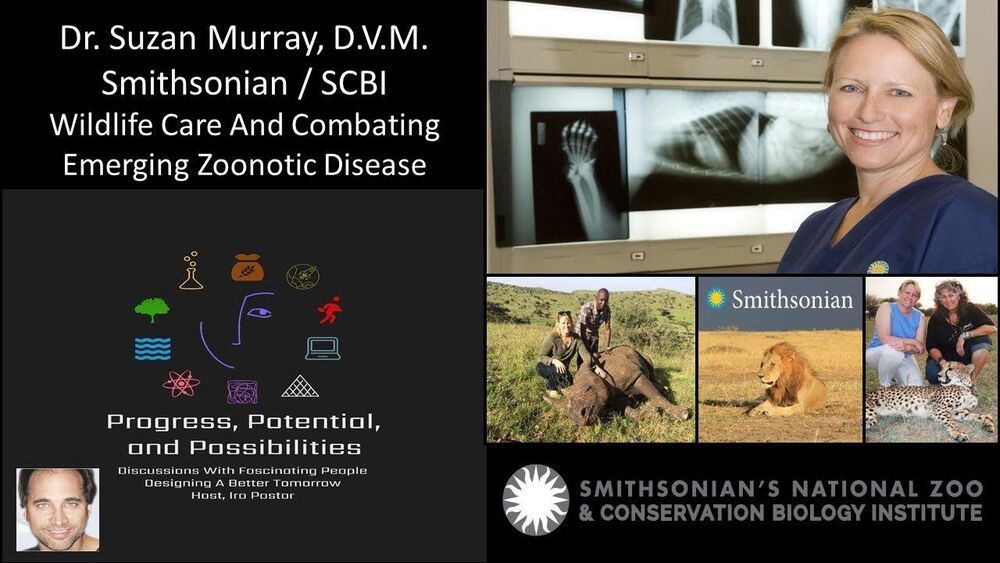
Wildlife Care And Combating Emerging Zoonotic Diseases — Dr. Suzan Murray, D.V.M., D.A.C.Z.M. Smithsonian’s National Zoo and Conservation Biology Institute, Program Director, Global Health Program.
Dr. Suzan Murray, D.V.M., D.A.C.Z.M. is a board-certified zoo veterinarian at the Smithsonian Conservation Biology Institute (SCBI) and serves as both the Program Director of the Global Health Program and as SCBI’s chief wildlife veterinary medical officer.
Apr 9, 2021
An Evolutionary Discovery That “Literally Changes the Textbook”
Posted by Quinn Sena in categories: biological, genetics, health, neuroscience
MSU’s expertise in fish biology, genetics helping researchers rewrite evolutionary history and shape future health studies.
The network of nerves connecting our eyes to our brains is sophisticated and researchers have now shown that it evolved much earlier than previously thought, thanks to an unexpected source: the gar fish.
Michigan State University’s Ingo Braasch has helped an international research team show that this connection scheme was already present in ancient fish at least 450 million years ago. That makes it about 100 million years older than previously believed.
Apr 6, 2021
Research team discovers use of elasticity to position microplates on curved 2D fluids
Posted by Saúl Morales Rodriguéz in categories: bioengineering, biological
A team of polymer science and engineering researchers at the University of Massachusetts Amherst has demonstrated for the first time that the positions of tiny, flat, solid objects integrated in nanometrically thin membranes—resembling those of biological cells—can be controlled by mechanically varying the elastic forces in the membrane itself. This research milestone is a significant step toward the goal of creating ultrathin flexible materials that self-organize and respond immediately to mechanical force.
The team has discovered that rigid solid plates in biomimetic fluid membranes experience interactions that are qualitatively different from those of biological components in cell membranes. In cell membranes, fluid domains or adherent viruses experience either attractions or repulsions, but not both, says Weiyue Xin, lead author of the paper detailing the research, which recently appeared in Science Advances. But in order to precisely position solid objects in a membrane, both attractive and repulsive forces must be available, adds Maria Santore, a professor of polymer science and engineering at UMass. In the Santore Lab at UMass, Xin used giant unilamellar vesicles, or GUVs, which are cell-like membrane sacks, to probe the interactions between solid objects in a thin, sheet-like material. Like biological cells, GUVs have fluid membranes and form a nearly spherical shape. Xin modified the GUVs so that the membranes included tiny, solid, stiff plate-like masses.
Apr 5, 2021
Sneaky New Bacteria on the ISS Could Build a Future on Mars
Posted by Genevieve Klien in categories: biological, space
NASA tracks the microbes that live on the space station, and sometimes it discovers new ones. Those hardy bugs may offer clues about surviving long missions.
Apr 4, 2021
A cellular platform for the development of synthetic living machines
Posted by Saúl Morales Rodriguéz in categories: biological, robotics/AI
Robot swarms have, to date, been constructed from artificial materials. Motile biological constructs have been created from muscle cells grown on precisely shaped scaffolds. However, the exploitation of emergent self-organization and functional plasticity into a self-directed living machine has remained a major challenge. We report here a method for generation of in vitro biological robots from frog (Xenopus laevis) cells. These xenobots exhibit coordinated locomotion via cilia present on their surface. These cilia arise through normal tissue patterning and do not require complicated construction methods or genomic editing, making production amenable to high-throughput projects.
